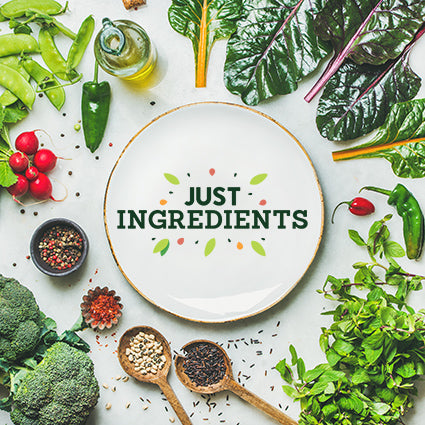Understanding Organic Food Labels: What Do They Really Mean? 🏷️
Are you confused by the array of labels adorning your favourite food products? Fear not! We're unravelling the mysteries of organic food labels and help you understand what they truly mean. From "Certified Organic" to "Non-GMO" and everything in between, let's dive into the world of organic agriculture and decode the language of sustainable food production...
1. Certified Organic: The Gold Standard 🌱 
When you see the "Certified Organic" label, it means the product has met stringent standards set by regulatory organisations. These standards prohibit the use of synthetic pesticides, genetically modified organisms (GMOs), and growth hormones.
Organic farmers employ natural methods to nurture the soil, conserve water, and promote biodiversity. Look for this label to ensure you're purchasing genuinely organic products.
2. 100% Organic: Pure and Wholesome ✔️
The "100% Organic" label signifies that all the ingredients in the product are certified organic. From farm to table, every step of the production process adheres to organic standards.
So, when you spot this label, you can rest assured that you're getting a product made entirely from organically grown ingredients.
3. Organic: Mostly Natural Goodness 💚
The label "Organic" indicates that at least 95% of the ingredients in the product are organically produced. While a small percentage of non-organic substances may be present, they must be on the approved National List of allowed substances.
Organic certification ensures that the product was produced with a focus on sustainability and environmental stewardship.
4. Made with Organic Ingredients: A Partially Organic Delight 👍 
Products labelled "Made with Organic Ingredients" contain at least 70% organic ingredients. The remaining 30% can include non-organic substances, as long as they are on the approved National List.
While not fully organic, these products still offer a significant portion of natural goodness.
5. Non-GMO: Keeping it Natural 🚫
The "Non-GMO" label assures you that the product does not contain genetically modified organisms. Genetically modified crops have their DNA altered through scientific methods, and many organic consumers prefer to avoid them.
This label provides peace of mind for those seeking GMO-free options.
6. Natural: A Word of Caution ⚠️ 
The term "Natural" can be misleading. Unlike "Organic," it is not a regulated label and does not have a standardized definition.
Products labelled as "Natural" may still contain synthetic chemicals or genetically modified ingredients (but not ours!)
Understanding organic food labels empowers you to make informed choices about the food you consume...
✔️ Certified Organic - Ensures that a product has met rigorous organic standards.
✔️ 100% Organic - Signifies pure and wholesome ingredients.
✔️ Organic and Made with Organic Ingredients - Offer varying degrees of organic content,
✔️ Non-GMO - Assures you of GMO-free options. However, be cautious of the Natural label, as it lacks regulation and can be misleading.
So, armed with this knowledge, venture with confidence and seek out the labels that align with your values and health goals. By choosing organic products, you support sustainable agriculture, protect the environment, and promote your well-being. Happy shopping and enjoy the bounties of organic food!




